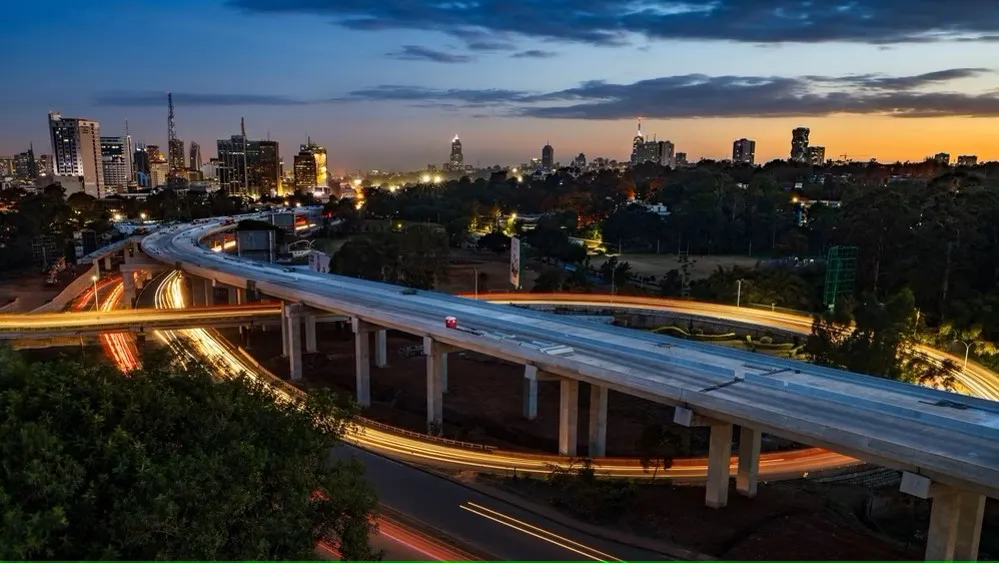Kenya’s real estate market has seen significant contributions from various diaspora communities — among them, the Somali community stands out as a major player.
With deep-rooted business ties and a growing presence in cities like Nairobi and Mombasa , Somalis have become influential players in Kenya’s property sector, particularly in areas like Eastleigh , where they’ve helped drive urban transformation.
In this blog, we’ll explore the impact of Somali real estate in Kenya , highlight top investment areas, discuss legal considerations, and show you why this segment of the market continues to grow.
Why the Somali Community Is Shaping Real Estate in Kenya
1. Strong Business Networks Across Borders 🌍
The Somali diaspora maintains strong economic connections between Kenya, Somalia, and the Gulf states. This has led to increased cross-border investments in Kenyan real estate.
💼 Did you know? Many Somali investors prefer to invest in real estate rather than keep money in banks due to inflation and political instability back home.

2. Urban Development in Eastleigh
Eastleigh, a neighborhood in Nairobi, has transformed into a vibrant commercial and residential hub thanks largely to Somali entrepreneurs and investors.
From shopping malls to apartment complexes , Somali-owned developments dominate the skyline.

Top Areas for Somali Real Estate Investment in Kenya
Here are some of the most popular locations for Somali property investment:
| Location | Highlights |
|---|---|
| Eastleigh | Commercial and residential hotbed; known as “Little Mogadishu” |
| Mombasa Road | Strategic corridor for trade and logistics |
| Garden Estate | Mixed-use developments attracting Somali families |
| Mombasa | Coastal investments, especially in tourism-driven properties |
| Kisauni (Mombasa) | Growing interest in beachfront land and rental apartments |
Types of Properties Invested in by Somalis in Kenya
Somali investors typically focus on property types that offer high returns and align with their business culture:
- ✅ Residential Apartments – Popular for family housing and rentals
- ✅ Commercial Shops – Located along busy streets and malls
- ✅ Warehouses and Logistics Hubs – Especially near transport corridors
- ✅ Land Investments – Long-term appreciation strategy
- ✅ Mixed-Use Developments – Combining retail and residential spaces
Legal Considerations for Somali Investors in Kenyan Real Estate
While Somalis play a vital role in Kenya’s real estate sector, it’s important to understand the legal framework governing property ownership:
1. Land Ownership Laws for Foreign Nationals
Foreigners cannot own land on a freehold basis but can acquire property through:
- 99-year lease agreements
- Buying under a Kenyan-registered company
2. Title Deeds and Due Diligence
Always verify title deeds and conduct proper due diligence before purchasing property in Kenya. Working with a licensed lawyer is highly recommended.
3. Taxes and Fees
Common costs include:
- Transfer fees (~4% of value)
- Stamp duty
- Rates and registration charges
⚠️ Pro Tip: Always ensure that the property is registered under a legitimate Kenyan entity if you’re a foreign investor.
How Somali Businesses Are Reshaping Nairobi’s Real Estate Landscape
The Eastleigh Transformation
Once considered a low-income area, Eastleigh has been revitalized by Somali entrepreneurs who’ve invested heavily in real estate and infrastructure.
Today, it features:
- High-rise apartment blocks
- Shopping centers like Sunn Mall and Eastleigh Plaza
- Affordable housing schemes
- Fast-growing service industries
This shift has not only boosted property values but also created job opportunities for locals.
Challenges Faced by Somali Real Estate Investors
Despite the success stories, there are challenges that Somali investors may encounter:
- ⚠️ Legal Restrictions – Foreign ownership limitations
- ⚠️ Market Volatility – Property prices can fluctuate based on local politics or economic conditions
- ⚠️ Bureaucratic Delays – Obtaining permits and approvals can be slow
However, many investors overcome these hurdles by partnering with local firms or hiring professional consultants.
Conclusion: Somali Real Estate in Kenya Is Here to Stay
From transforming neighborhoods like Eastleigh to investing in commercial hubs across Nairobi and Mombasa, the Somali community has left a lasting mark on Kenya’s real estate landscape .
Whether you’re part of the Somali diaspora looking to invest or an outsider curious about this growing trend, understanding the dynamics of Somali real estate in Kenya opens doors to smart, profitable opportunities.
If you’re considering entering this market — whether as a buyer, seller, or developer — now is a great time to explore the potential this vibrant community brings to Kenya’s property scene.
Frequently Asked Questions (FAQs)
Q: Can Somalis buy property in Kenya?
A: Yes, through leasehold agreements or via a Kenyan-registered company .
Q: Which areas do Somali investors prefer in Kenya?
A: Eastleigh , Mombasa Road , and parts of Mombasa are top choices.
Q: Are there Somali real estate agencies in Kenya?
A: Yes, several Somali-owned firms operate in Nairobi and Mombasa, offering services ranging from sales to property management.
Q: Is real estate in Eastleigh a good investment?
A: Yes — property values have risen steadily over the past decade, driven by infrastructure and business growth.

Join The Discussion